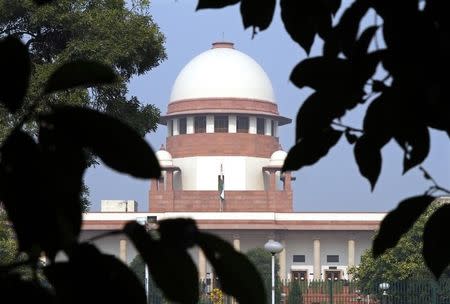Supreme Court reserves judgment on illegal coal blocks

NEW DELHI (Reuters) - The Supreme Court ended its hearing on Tuesday into whether it would cancel the award of more than 200 coal blocks it had previously ruled illegal, with Chief Justice Rajendra Mal Lodha saying it would reserve judgment to an unspecified later date. The court last month found that the country's decades-old method of granting coal mining concessions was illegal, putting investments worth billions of dollars at risk and threatening to worsen a national coal shortage. The blocks include about 40 that are producing coal, estimated to have a capacity of about 9 percent of the 566 million tonnes India produced last year. A decision to cancel the blocks would hit firms including Jindal Steel and Power Ltd , Hindalco Industries Ltd and Sesa Sterlite Ltd , which have spent heavily on steel and power plants based around the coal blocks. India is suffering from an acute shortage of coal, which fuels about three-fifths of its power needs, and has had to turn to costly imports to meet rapidly growing demand. The government's top lawyer, Attorney General Mukul Rohatgi told the court on Tuesday that if coal block allocations are cancelled, the government was ready to re-auction the blocks. Rohatgi also said that if all blocks are cancelled, state giant Coal India should be allowed to take over active mines, or companies be allowed to continue production until the blocks are re-auctioned, in order to avoid supply disruptions. More than half of India's thermal power stations had less than a week's supply of coal on hand as of last Thursday, the lowest since mid-2012 when 620 million people in India were cut off in one of the world's worst blackouts. (Reporting by Suchitra Mohanty; Writing by Tommy Wilkes; Editing by Douglas Busvine)

 Yahoo Finance
Yahoo Finance 